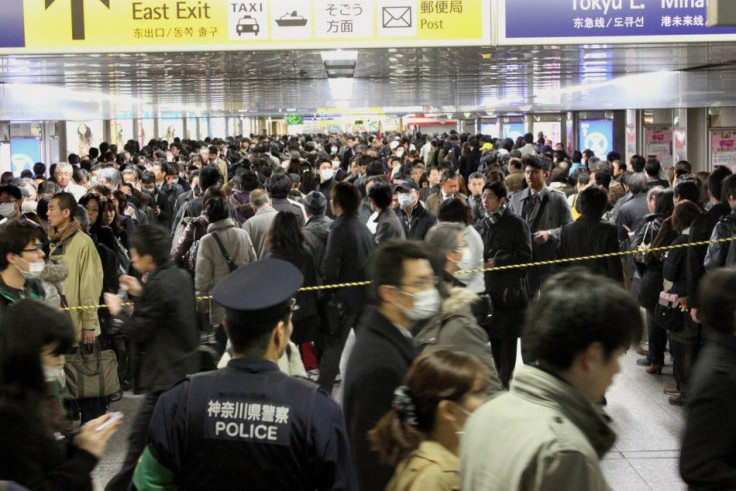Fear and shock in Tokyo

The huge bustling metropolis of Tokyo, 150 miles south of the epicenter of Japan’s earthquake-tsunami disaster, has seen life come to a virtual halt in the face of unprecedented fears arising from the damaged nuclear power plants in Sendai.
Many Tokyo residents (who number about 35-million, taking into account the surrounding metropolis) are facing massive shortages and power cuts for a lengthy period of time and the nation’s leaders grapple with its worst crisis since World War II.
Stores in Tokyo are reportedly barren of supplies, either purchased by people living on a doomsday clock, or because the supply chain has been disrupted. There are also shortages of petrol and food, as well as the trauma of repeated aftershocks.
Electronics stores have sold out of torches, radios and other items that would be useful in a catastrophe.
It's a very severe situation, but there are a number of plans in place, people are cooperating, and we're able to turn to thermal and other energy sources in increase supply, said Mitsuharu Kawabata of the Federation of Electric Power Companies of Japan.
There's never been this kind of lack of supply since after World War II.”
Commuter train services, crucial to a city of millions of workers, has been severely curtailed. Airports are also closed.
We are aware of the difficulties facing the Japanese economy, and practical issues of how to use the electricity supply, deputy government spokesman Noriyuki Shikata said, according to Reuters. Obviously there are massive needs for rebuilding and reconstruction.”
Meanwhile, many foreigners are fleeing the city, due largely to fears that radiation from the damaged nuclear plants in Sendai will eventually leak to Tokyo. Families from the US, UK, Canada and Europe are preparing to leave Japan. Rumors have spread on the internet of another imminent tremor.
In fact, Japan’s Meteorological Agency warned that there is a 70-percent chance of a magnitude-7 or stronger earthquake striking in the next three days – and a 50 percent chance in the three days thereafter that.
One manager at a US investment bank, who is planning to send his wife and children out of the country, said the point is not to leave when everyone is in a panic but to leave while things are still orderly.”
The embassies of France and Luxembourg have already advised their nationals to leave the whole Kanto region, which includes Tokyo.
Japanese residents are themselves frustrated by and skeptical towards their governments assurances that the health risks from the nuclear facility have been contained.
The nuclear power plant disaster reminds me of World War II when we didn't get enough information about what was really going on, an elderly Tokyo resident said, reported Time magazine.
The government only gave the information it wanted to and people needed more details.
The US embassy in Tokyo has warned of substantial misinformation circulating among the Japanese public.
© Copyright IBTimes 2025. All rights reserved.





















